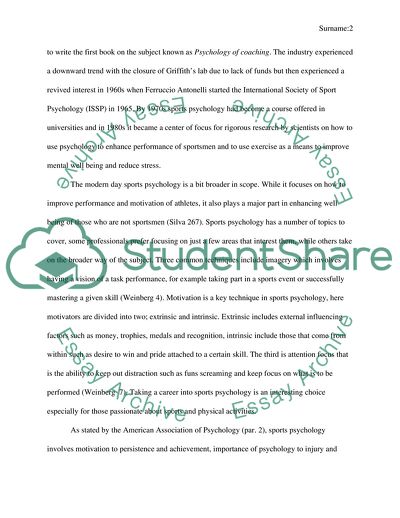Cite this document
(The Field of Sports Psychology Essay Example | Topics and Well Written Essays - 1250 words, n.d.)
The Field of Sports Psychology Essay Example | Topics and Well Written Essays - 1250 words. https://studentshare.org/psychology/1825290-the-field-of-sports-phsycology
The Field of Sports Psychology Essay Example | Topics and Well Written Essays - 1250 words. https://studentshare.org/psychology/1825290-the-field-of-sports-phsycology
(The Field of Sports Psychology Essay Example | Topics and Well Written Essays - 1250 Words)
The Field of Sports Psychology Essay Example | Topics and Well Written Essays - 1250 Words. https://studentshare.org/psychology/1825290-the-field-of-sports-phsycology.
The Field of Sports Psychology Essay Example | Topics and Well Written Essays - 1250 Words. https://studentshare.org/psychology/1825290-the-field-of-sports-phsycology.
“The Field of Sports Psychology Essay Example | Topics and Well Written Essays - 1250 Words”. https://studentshare.org/psychology/1825290-the-field-of-sports-phsycology.


